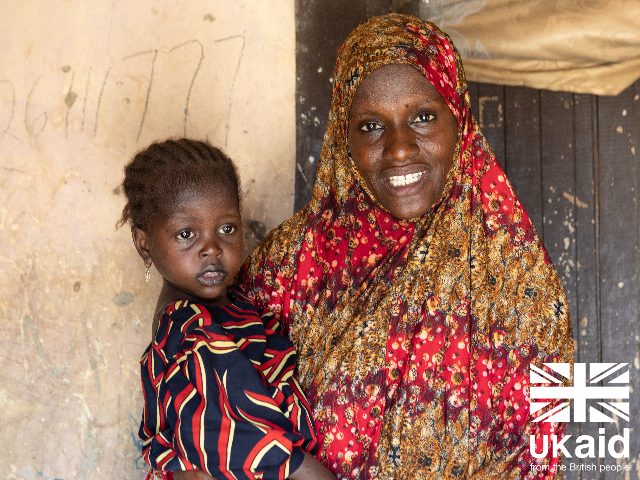London, United Kingdom, August 21, 2024 — The International Rescue Committee (IRC), has today announced outstanding results from the first year of its UK Aid Match-funded malnutrition programme in Nigeria. The initiative, which focuses on Maiduguri, Jere, and Monguno Local Government Areas (LGAs) in the North East of the country, has significantly surpassed its targets in addressing acute childhood malnutrition.
Since its launch in July 2023, the programme has achieved strong results in several key areas. By focusing on treatment, education, and community engagement, the IRC and its local delivery partner – GREENCODE - have created a robust framework for addressing malnutrition. These activities have not only provided immediate malnutrition treatment to children in need but also equipped local communities with the knowledge and skills to identify and address the roots causes of nutritional issues. Key achievements of this multi-faceted approach include:
- Reaching a total of 43,061 people across the three LGAs, demonstrating the programme's extensive reach and impact.
- Treating 27,101 children aged between six months and 5 years old for acute malnutrition, directly addressing the critical nutritional needs of the most vulnerable age group.
- Providing nutrition education to 8,187 parents and caregivers, empowering families with essential knowledge for proper nutrition and childcare.
- Training 62 community influencers and 7,711 community members on identifying and referring children with nutritional concerns, creating a sustainable network of local support and an early intervention approach.
Most notably, the programme achieved a remarkable 98% recovery rate among children treated for malnutrition, far exceeding the target of 82%. This success underscores the high quality and effectiveness of the treatment and management practices implemented at the project sites. It also highlights the programme's ability to not only reach children and families in need but to provide them with truly transformative care.

Fanta Abatcha, a 30-year-old mother whose two-year-old daughter received treatment for malnutrition, shared,
"[My daughter] was admitted and treated by the doctors. They gave her injections, milk, and Ready to Use Therapeutic Food (RUTF). It was surprising how she responded rapidly to treatment. Before then, I had given up on my daughter thinking she would die, but thanks to the IRC, my daughter survived and is doing very well now."
Another IRC Client, Amina Kabiru, a 35-year-old mother whose two-year old daughter, Fatima, was also treated for malnutrition, added,
“It is impossible to forget the practices taught by the IRC, that would keep my children healthy and happy. Apart from giving them nutritious meals and maintaining good hygiene, I have shared all I have learned with other women in the community. I have become a self-appointed advocate.”
Khusbu Patel, International Rescue Committee UK interim Executive Director, said,
“Thanks to the generous support of the UK government and the British public, the IRC has been able to make a real difference to thousands of children and families in Nigeria. Globally, 45 million children suffer from acute malnutrition at any given time, with up to two million dying annually. Addressing this crisis is central to the IRC's mission. We're prioritising innovative, simplified approaches that ensure more children can receive life-saving treatment. This programme in Nigeria exemplifies such a commitment, showcasing the impact of collaborative efforts in tackling global challenges.”
Notes to Editors
For further background on the UK Aid Match Protecting Milestones appeal, see our previous press release and fundraising appeal main page.
The IRC
The IRC began responding in Nigeria following severe flooding in 2012. Since then, the IRC has expanded its operations across northeast Nigeria’s Borno, Adamawa and Yobe (BAY) states working largely at the local government area levels, as well responding to emergencies in Zamfara state (northwest Nigeria) and Kogi state (north central Nigeria). The IRC’s programming approach consists of integrated multisectoral programming in health, nutrition, education, water and sanitation, and protection for women, men, girls and boys who are internally displaced and in host communities. Learn more about the IRC’s response in Nigeria.
UK Aid Match
UK Aid Match brings charities, the UK public and the UK government together to collectively change the lives of some of the world’s poorest and most vulnerable people. It is designed to provide opportunities for the UK public to engage with international development issues and to allow the public to have a say in how UK aid is spent, whilst boosting the impact of the very best civil society projects to reach the poorest people in developing countries. For every £1 donated to a UK Aid Match charity appeal by an individual living in the UK, the UK government will also contribute £1 of UK aid, up to £2 million, to help these projects go further in changing and saving lives.